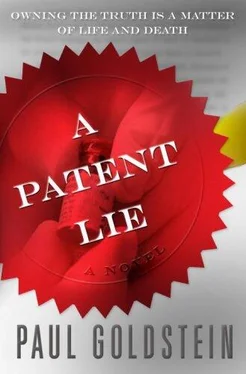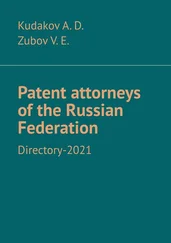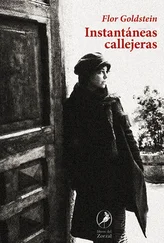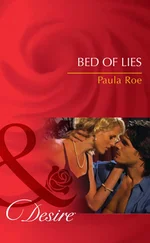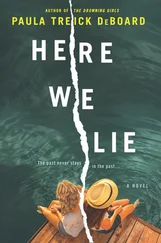Paul Goldstein - A Patent Lie
Здесь есть возможность читать онлайн «Paul Goldstein - A Patent Lie» весь текст электронной книги совершенно бесплатно (целиком полную версию без сокращений). В некоторых случаях можно слушать аудио, скачать через торрент в формате fb2 и присутствует краткое содержание. Жанр: Криминальный детектив, на английском языке. Описание произведения, (предисловие) а так же отзывы посетителей доступны на портале библиотеки ЛибКат.
- Название:A Patent Lie
- Автор:
- Жанр:
- Год:неизвестен
- ISBN:нет данных
- Рейтинг книги:3 / 5. Голосов: 1
-
Избранное:Добавить в избранное
- Отзывы:
-
Ваша оценка:
- 60
- 1
- 2
- 3
- 4
- 5
A Patent Lie: краткое содержание, описание и аннотация
Предлагаем к чтению аннотацию, описание, краткое содержание или предисловие (зависит от того, что написал сам автор книги «A Patent Lie»). Если вы не нашли необходимую информацию о книге — напишите в комментариях, мы постараемся отыскать её.
A Patent Lie — читать онлайн бесплатно полную книгу (весь текст) целиком
Ниже представлен текст книги, разбитый по страницам. Система сохранения места последней прочитанной страницы, позволяет с удобством читать онлайн бесплатно книгу «A Patent Lie», без необходимости каждый раз заново искать на чём Вы остановились. Поставьте закладку, и сможете в любой момент перейти на страницу, на которой закончили чтение.
Интервал:
Закладка:
The reporter held the microphone an inch from Seeley's mouth. “Vaxtek is a tiny company in South San Francisco. Tell us what your client's chances are of winning this case against a multinational giant like St. Gall.”
“That's what the trial's for, isn't it?” Seeley watched bewilderment creep into the buffed and polished face. “So a jury can listen to the evidence and weigh the facts, and then decide who has the stronger claim.”
The car horn blared again. The reporter said, “But your opponent, Emil Thorpe, just explained to our viewers why your client's case is so weak.”
Thorpe's remarks had doubtless brimmed with confidence that St. Gall could not possibly lose. And when, in two weeks his client did lose, the company's public relations staff would hand him a statement that explained why the loss was really a win.
Seeley put on his widest actor's smile and looked squarely into the camera. “I'm sure Mr. Thorpe has already more than fulfilled your viewers' need for entertainment this evening.” He turned away abruptly before the reporter could follow up, and found himself inches from the curly-haired activist.
In black jeans and a sleeveless sweater over what looked like a Hawaiian shirt, the man was younger and taller than he had appeared from a distance, and Seeley experienced the rare discomfort of having to look up to someone who wasn't a judge sitting on a bench.
“This trial is an outrage,” the man said, smiling directly at the news camera. Only the golden puff of a goatee spoiled his scrubbed all-American good looks. “How can this man defend a patent that will make it impossible for millions of people to get a lifesaving drug?”
Before Seeley could answer, the newsman signaled his cameraman to come in closer and Barnum shouldered his way to the camera. “We've spent half a billion dollars on AV/AS,” Barnum said. “That makes it our property.”
The protester said, “So you get rich while people die.”
“We have a responsibility to our shareholders.”
“So they get rich while people die.” The protester's smile turned into a mocking laugh.
Seeley didn't like trying a case in the media, but Barnum could say something truly damaging, and he worried that one or more jurors would forget Judge Farnsworth's closing request to stay away from the news.
Seeley edged in front of Barnum. “Unfortunately,” he said to the camera, “discoveries like AV/AS don't just happen. What Mr. Barnum is saying is that they consume money, lots of it.”
“What's worse,” the protester asked him, “that your client loses its investment or that millions of people lose their lives?”
Seeley said, “You could also feed starving people by letting them steal wheat from the field, but if you did that, how many farmers are going to invest in seed and fertilizer for next year's crop? It's the same with research. A company's not going to invest in making the next breakthrough discovery if it knows a competitor's going to be able to rip it off just like the last one.”
“Jonas Salk didn't try to get a patent on the polio vaccine. He gave it away free.”
The protester reminded Seeley of the idealistic young artists he represented pro bono when he practiced in New York. “That was fifty years ago,” he said, “and Jonas Salk was a saint. How many saints do you know with the cash to bring a drug like this to the market?”
The man, his smile uncertain now, said, “The government should pay for the research and give the drugs away free to anyone who needs them.”
“How comfortable are you letting politicians decide what kinds of drugs get developed? If it were up to the politicians, do you think we'd have the AIDS therapies we have today?”
“And you think we should trust businessmen with that decision?”
Seeley said, “There's no reason to trust businessmen any more than politicians. But you can trust the profit motive. If these therapies are what people want and will pay for, drug companies will produce them.”
“That's my point,” the curly-haired man said. “Your client will produce only what people can pay for.”
“But, the alternative is no AIDS treatments at all.”
Seeley leaned into the protester, turning him away from the camera and speaking quietly so that the microphone wouldn't pick up his words. “If you and your people gave this some thought, you'd leave off attacking our patent and, when we win our case, you'll put pressure on my client to sell AV/AS at prices that people in places like Africa an afford. That way, you get our drug and you get to save lives, too.”
At the bottom of the plaza, Gail Odum, pencil in hand and notebook open, was talking to one of the protesters, a broad-shouldered woman with jet-black hair that flowed well below her shoulders. At something one of them said, the two suddenly broke into laughter, Odum touching the woman's arm. Did Odum and Lily laugh like that when they talked? Women's secrets. A woman's touch-Seeley could still feel Renata's hand flat against his chest. It came as a surprise to him how lonely he was for that.
ELEVEN
On Monday at 7:40 a.m., while Judge Farnsworth proceeded through her motion calendar, Seeley reviewed the notes for his opening statement. The benches on both sides of the gallery were filled. Palmieri had pointed out to Seeley the lawyers sent by their investment bank clients to evaluate every nuance of the trial for its possible impact on stock prices. Seven years ago, when a federal court ruled that the patent on Prozac was invalid, Eli Lilly shares plummeted more than thirty percent. These lawyers were here to anticipate any such effect on the shares of Vaxtek or St. Gall.
The press was in the back, Gail Odum from the Chronicle dressed today in a severe gray suit. The offhand attire of the six or seven figures talking by the gallery rail identified them as part of the protest group, but Seeley didn't see the tall curly-haired protester he had debated with outside for the evening news. Leonard was in the front row, sunny in a light-colored suit. Warshaw wasn't there, but Seeley hadn't expected him to come.
Seeley was thinking about Dr. Robert Gore and his invention of Gore-Tex when Barnum slid an electric red binder onto counsel's table.
“Very bright,” Seeley said.
“Look inside.” Barnum took his chair at the side of the table.
Palmieri watched as Seeley opened the binder. At the top of the first page, in large type, was the name of juror number seven, Bernard Adelson, the retired schoolteacher, and beneath it and on the three pages that followed, every fact a trial lawyer might want to know about the juror, his family, his medical history, his and his family's every habit and whim. The remaining pages, arranged alphabetically, did the same for the other jurors. Seeley felt an impulse to turn to the back of the binder, where the information on Gary Sansone, the kid, would be, but closed it instead.
“We can't use this.”
“This is valuable material,” Barnum said. “Joel hired a firm to collect it.”
“Jurors don't get paid forty dollars a day to have Warshaw's investigators poke into their private lives.” Seeley's words were louder than he realized, because the judge glanced up from her papers and shot him a cross look.
“Did you investigate me?”
“Of course, we did,” Barnum said.
And still, Seeley thought, you hired me. He handed the binder to Barnum. “Shred everything in here.”
Seeley had been thinking about Robert Gore because the invention of Gore-Tex was one of those flashes of creative genius that made a patent unassailable in court. Gore had been attempting to transform hard Teflon rods into a more pliable material by following the conventional wisdom and stretching the rods slowly. But no matter how much he slowed the process, the brittle rods continued to break. Then Gore somehow got the inspiration to do exactly the opposite, and discovered that by stretching the rods as rapidly as possible he could extend them to ten times their length without breaking, turning them into a soft, flexible material that, when bonded to cloth, produced a fabric perfect for rainwear. If only Steinhardt could convey to the jury that same brilliant eccentricity of discovery, AV/AS, too, might be invulnerable to attack.
Читать дальшеИнтервал:
Закладка:
Похожие книги на «A Patent Lie»
Представляем Вашему вниманию похожие книги на «A Patent Lie» списком для выбора. Мы отобрали схожую по названию и смыслу литературу в надежде предоставить читателям больше вариантов отыскать новые, интересные, ещё непрочитанные произведения.
Обсуждение, отзывы о книге «A Patent Lie» и просто собственные мнения читателей. Оставьте ваши комментарии, напишите, что Вы думаете о произведении, его смысле или главных героях. Укажите что конкретно понравилось, а что нет, и почему Вы так считаете.
